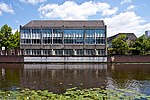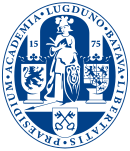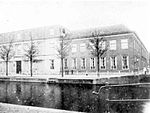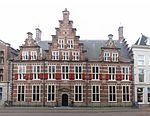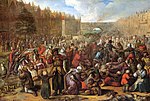Leiden University Library

Leiden University Libraries is a library founded in 1575 in Leiden, Netherlands. It is regarded as a significant place in the development of European culture: it is a part of a small number of cultural centres that gave direction to the development and spread of knowledge during the Enlightenment. This was due particularly to the simultaneous presence of a unique collection of exceptional sources and scholars. Holdings include approximately 5,200,000 volumes, 1,000,000 e-books, 70,000 e-journals, 2,000 current paper journals, 60,000 Oriental and Western manuscripts, 500,000 letters, 100,000 maps, 100,000 prints, 12,000 drawings and 300,000 photographs. The library manages the largest collections worldwide on Indonesia and the Caribbean. Furthermore, Leiden University Libraries is the only heritage organization in The Netherlands with three registrations of documents in UNESCO's Memory of the World Register. "Est hic magna commoditas bibliothecae ut studiosi possint studere" —Josephus Justus Scaliger"The greatest advantage of the library is that those who want to study, can study."
Excerpt from the Wikipedia article Leiden University Library (License: CC BY-SA 3.0, Authors, Images).Leiden University Library
Paterstraatje, Leiden
Geographical coordinates (GPS) Address Nearby Places Show on map
Geographical coordinates (GPS)
| Latitude | Longitude |
|---|---|
| N 52.1575 ° | E 4.4811111111111 ° |
Address
Witte Singel-Doelencomplex
Paterstraatje
2311 BV Leiden
South Holland, Netherlands
Open on Google Maps
